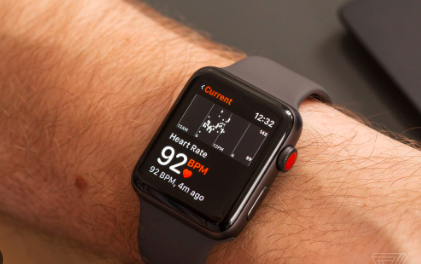Using artificial intelligence (AI) technology to detect and forecast cardiovascular illnesses (CVDs), such as atrial fibrillation and heart failure, early on is known as AI heart health early detection and monitoring. Large datasets, such as imaging findings, wearable device data, lifestyle variables, and electronic health records, are used by AI systems to identify trends and identify tiny indications of cardiac problems that conventional techniques could overlook.
Despite the fact that heart disease is the primary cause of mortality in the US, many heart attack victims are not aware that they have the underlying illness.
The upstart cardiovascular imaging company Cleerly wants to change this. Similar to how mammograms and colonoscopies identify breast and colon cancer, the company’s AI program analyzes heart CT images to find early-stage coronary artery disease.
According to doctor James Min, who established Cleerly in 2017, “most people who will die of heart disease and heart attacks will never have any symptoms.” “We must eventually begin screening for heart disease worldwide.” Min established a trial study at New York-Presbyterian Hospital/Weill Cornell Medicine in 2003, which eventually led to the company’s growth. However, there should be an intermittent checkup on heart disease with the use of approved wearable ai devices. Such as
Sensors
Actuators
Software
Electronic patches attached to the skin
To demonstrate that its screen can detect cardiac issues in individuals without illness symptoms more precisely than other common non-invasive techniques like taking blood pressure and cholesterol readings, Cleerly is presently conducting a sizable, multi-year clinical research study.
The firm might greatly benefit from obtaining regulatory approval to screen big populations, which would greatly increase its market reach and income.
There is a lot of interest from investors because of this great potential. Insight Partners and Battery Ventures led a $106 million Series C expansion round that was raised. The significant capital raising follows Cleerly’s $223 million Series C, which was led by T. Rowe Price and Fidelity, just over two years ago.
A corporation that sells off another portion of itself at the price from the prior round is said to be in an extension round. Despite the fact that extension rounds frequently indicate that a firm is struggling to grow (if they were, a fresh round at a greater valuation would be raised. According to Insight Partners managing director Scott Barclay, Cleerly’s is expanding quickly enough. “Clearly gains additional capital to finance future growth and multi-site clinical trials by allowing Insight to join a previous round,” he added.
Cleerly was thrilled to have Insight Partners, one of the biggest business software investors, in its cap table, arguing that the company did not need to require more funding because its other backers were crossover firms or healthcare VCs.
Barclay is confident in Cleerly’s skills. Although the business is currently seeking full FDA clearance for general heart screening, its algorithms for identifying symptomatic patients have previously been approved by the FDA, and in October, Medicare granted funding for its plaque analysis test. Plaque buildup is a common cause of heart attacks.
Until recently, individuals who complained of chest symptoms would have been diagnosed with a coronary angiography, an invasive procedure that uses an x-ray and catheter to evaluate blood flow to the heart, or a stress test, which includes monitoring heart function during physical exercise.
Health insurers and Medicare appear to agree with Cleerly’s assertion that its AI-driven interpretation of the CT scan picture is less demanding on the body than an angiography or stress test, as evidenced by their agreement to pay for the test.
According to Min, Cleerly has had a compound annual growth of more than 100% over the four years that the company’s software has been on the market. “And now that most payers recognize its diagnostic method for about 15 million people who present with heart problems each year, the company is poised to continue its growth trajectory,” he said.
There are rivals to Cleerly. HeartFlow and Elucid are two other businesses focusing on AI-driven picture analysis of cardiac plaque, but since they all eventually hope to screen the whole population over a certain age, there should be more than one victor in this industry.






